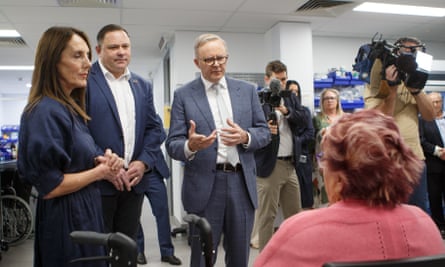Those of us who desperately want to see the back of this dismal Conservative government should take heart from the recent local elections in England. We should also be encouraged by the successes of the centre left around the world, which has defeated the political right in elections in Australia, Germany, Spain, Portugal and the US, after a dramatic decline in support for social democratic parties after the 2008 financial crisis.
But if we can learn one thing from these recent successes, it is that there is nothing inevitable about the return of social democracy. Granted, after the pandemic, many voters have grown weary of the failure of the political right to address their need for security and prosperity as they face the cost of living crisis. But voters everywhere remain sceptical of the ability of politics and politicians, from all parties, to act in their interests. They are sceptical too of the capacity for government to change their lives for the better, at a time when we badly need to renew the modern state in the face of the perma-crises hitting all our nations.
The metaphor that the pendulum inevitably swings back from right to left and back again ignores the simple fact that of the 123 years of the Labour party’s existence, it has only been in power for just over 30 of them. If there is a pendulum, it gets stubbornly stuck on one side. The UK Labour party needs to take learning, not comfort, from the tentative revival of the centre left.
Undoubtedly, Scott Morrison in Australia and Donald Trump in the US were divisive and unpopular incumbents. The Australian Labor party learned from its defeat by Morrison in 2019 not to overload the prospectus for government, and came back with clear, bold pledges in 2022. Anthony Albanese was the voice of hopeful, safe change for Australia, carrying a positive message in the run-up to the campaign, with practical, deliverable promises on the people’s priorities.
Similarly the Social Democratic party in Germany made four big simple pledges to back its grander missions for government. These successful sister parties have modelled a steady and unifying leadership in contrast to the divisive politics of their opponents, backed by solid social democratic platforms on wages, pensions and public services that resonate with people’s need for security and prosperity after the pandemic.

In the UK, there is no route to a parliamentary majority for Labour without reconstituting the historical coalition between today’s working-class voters and liberal-leaning middle-class voters. Of course, their forms have changed over time and election results with different voting systems are reflecting that societal fragmentation. Today’s working class is multi-ethnic, more likely to be female, and living and working in towns and cities across the country – and there is simply no way to get a parliamentary majority without them. For Labour that means realigning with new working-class voters. And the local election results back polling that shows Labour is ahead again among working-class voters.
Whether this tentative revival can be turned into durable majorities will rest on whether we can deliver the change that people are crying out for. If voters give the centre left the chance to be in government again, then the changes Labour instigates must make a difference to people’s lives, not just win plaudits in the abstract. This is “kitchen table economics”, to coin a phrase from the Australians. Despite the highfalutin speak of policy experts, it is much, much harder these days to translate policy change into real-world improvements in people’s pockets. The old playbook from left or right of a pay out or a tax cut won’t work in an era when these can be cancelled out by the next gas bill.
Keir Starmer’s embrace of a mission-driven approach to government provides the opportunity to tackle the root causes of stagnating wages and volatile costs, as well as offer help now. On the back of strong jobs growth, Albanese’s government has just announced a slew of reforms to provide assistance with the cost of living, tackle some of the structural problems such as older care and childcare, and bring the budget back into surplus. Being streamlined and disciplined during a campaign does not have to inhibit serious-minded reform in government.
Around the world, rightwing populists remain a serious electoral presence. The forces that brought them to the fore have accelerated rather than slowed. They are winning larger shares of the vote, as shown in the recent elections in Italy and Sweden. Marine Le Pen is outpolling Emmanuel Macron in France. Donald Trump is outpolling Joe Biden ahead of the presidential elections next year. This week, London is hosting a three-day jamboree of right-leaning self-styled NatCons. Make no mistake, there is a battle on, and it is a battle for the future of our nations that will be fought in the media and conversations in our towns, suburbs and neighbourhoods.
In three years, Starmer has taken the Labour party further and faster than many thought imaginable. After the encouraging result at the local elections, Labour now offers the hope that a better future for our country is possible. But that must be grounded in a practical programme to improve people’s prospects. Only then will we have earned the trust we ask for.
Claire Ainsley is director of the Progressive Policy Institute’s centre-left renewal project and was Labour’s executive director of policy from 2020 to 2022

